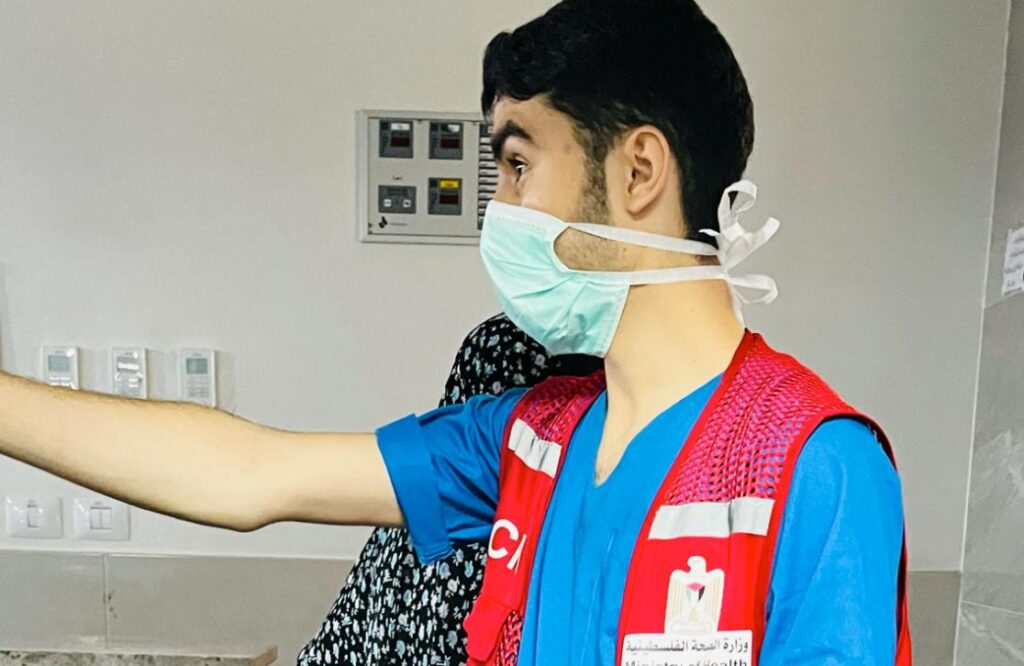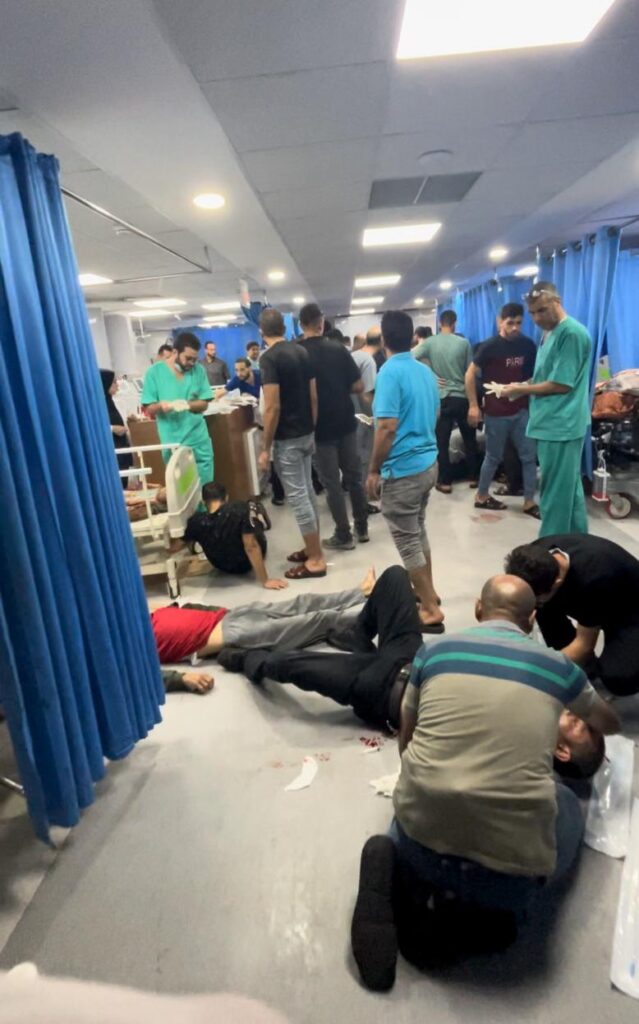Angels of mercy also feel


As an emergency room nurse at Al-Shifa Hospital, Gaza’s largest medical center, I had become used to blood and body parts as we treat the civilian casualties of the brutal Israel-Hamas war. All the medical staff had grown used to the physical toll. And the psychological — because we worked long days and nights away from our families.
With no way to consistently be in touch, to make sure our loved ones were safe, our workdays were tinged with fear. It was like having one heart that was split in two: one side treating a flood of injured patients, the other remaining with our families, hoping they were safe, outside of what should have been the hospital’s protected zone.
The days were very hard. But they got even worse when we got word of bombing near where our families lived. I heard colleagues scream and cry when injured relatives arrived in the emergency room.
Then, one day, all communications suddenly went dead. The Israelis had bombed the communication towers that sent signals to the mobile phone networks. We lost all ability to communicate with our families.
Nearby shelling, and panic
Shortly after that blackout, I heard shelling. I didn’t know where it was, but I remember my heart pounding. I asked a nearby paramedic where it was coming from. He told me near my family’s residence. I felt like I’d been slapped hard across the face.
At that moment, everything changed. I was supposed to focus on treating the injured, but my impulses took over. I started searching for my own family members. I searched among the injured as they were brought in. I ran to the ambulances to search there. Some patients were so badly hurt, they were hard to identify.
I gave my colleagues descriptions of relatives so they could alert me if any were brought in. I even rushed to the morgue to search among the dead. I cried. I anticipated the worst. With communications cut off, I felt unable to do anything but wait.
As time passed, communications returned. One morning, after dozens of attempts, my brother finally answered the phone. He told me they were okay but had to move because the shelling was intense and the army was advancing toward them. He told me to leave the hospital and catch up with them. I told him I wouldn’t. Hospitals were safe places where the army wouldn’t come. And I ended the call.
Alaa’s story
Civilian hospitals are protected in wartime under international law. Article 18 of the Geneva Convention states, “Civilian hospitals organized to give care to the wounded and sick, the infirm and maternity cases, may in no circumstances be the object of attack, but shall at all times be respected and protected by the Parties to the conflict.” So even though were treating people injured in a war, our hearts were somewhat at peace knowing that we wouldn’t be attacked in the hospital.
But the rules changed.
I knew what it would be like to work in a hospital. I had spent my internship as a nurse in the very same medical center, and in the emergency department. But nothing prepares you for wartime. The burden on us grew daily. Food and drink were in short supply. Staff started to not come to work because they couldn’t get safely from their homes to the hospital. We were exhausted. But the psychological toll of seeing so many hurt and dying people was worse. And I came to realize, too, that I couldn’t count on international law to protect us. Especially after what happened to my colleague, Alaa Al-Louh.
Alaa had been an ER volunteer since the first day of the war. We worked as one team, accomplishing much together — until the middle of November, when the hospital came under siege by Israeli forces who said a Hamas control center lay beneath it.

We never thought the Israeli army would enter the hospital. But soldiers came in and proceeded to forcibly evacuate us to the south. We left then. Alaa was with us. But she wanted to go to her uncle’s house nearby for a day, and then go on to her own home. Alaa left us, and we were relieved to find out she made it safely to her uncle’s. But the next day, as she tried to get to her own home, with other members of her family, she was hit by a sniper’s bullet.
Angels of mercy. That’s what some people call nurses. And that’s what I thought of when I heard that Alaa had died. She had been like an angel comforting the wounded when she worked with me. And now she was an angel in the sky. Another civilian casualty of this terrible conflict.
Moamen’s ordeal
There were other tragedies among the medical personnel I knew. My friend Moamen,* a dedicated nurse, was working at the Indonesian Hospital in North Gaza when that hospital came under attack. He was a witness to unbelievable brutality. People were killed inside the hospital. Dogs were unleashed on medical staff.
Moamen was among those targeted. He was bound and beaten as he was taken to prison. Article 20 of Geneva Convention states, “Persons regularly and solely engaged in the operation and administration of civilian hospitals, including the personnel engaged in the search for, removal and transporting of and caring for wounded and sick civilians, the infirm and maternity cases, shall be respected and protected.”
But that didn’t matter in Moamen’s case. He had no choice but to try to endure his captivity. Days turned into weeks. Still, he was in prison, subjected to beatings, tortures, humiliation, and threats. He was bound and blindfolded. He was deprived of food and water. And he had committed no crime.
Moamen was eventually released. But he had broken ribs and had sustained injuries to his kidneys and spleen. Even worse, he was psychologically scarred. Unable to speak or explain much about what had happened. In shock at what had occurred.
Nurses feel everything
This is all to say, we are people in Gaza. In my case, I am a nurse. We’re not numbers. We’re not rocks. We feel everything. We collapse, we cry, we suffer.
I don’t know where this will end. But we are there to help the sick and the dying. And if no one remains to do that as this terrible war goes on, everyone will perish.
*Last name withheld, for security reasons













